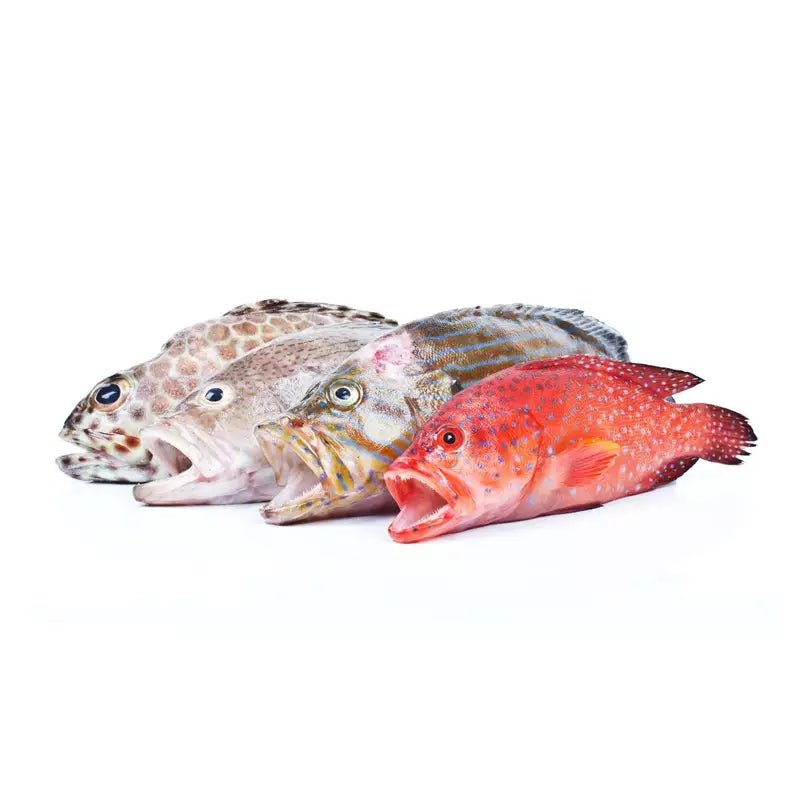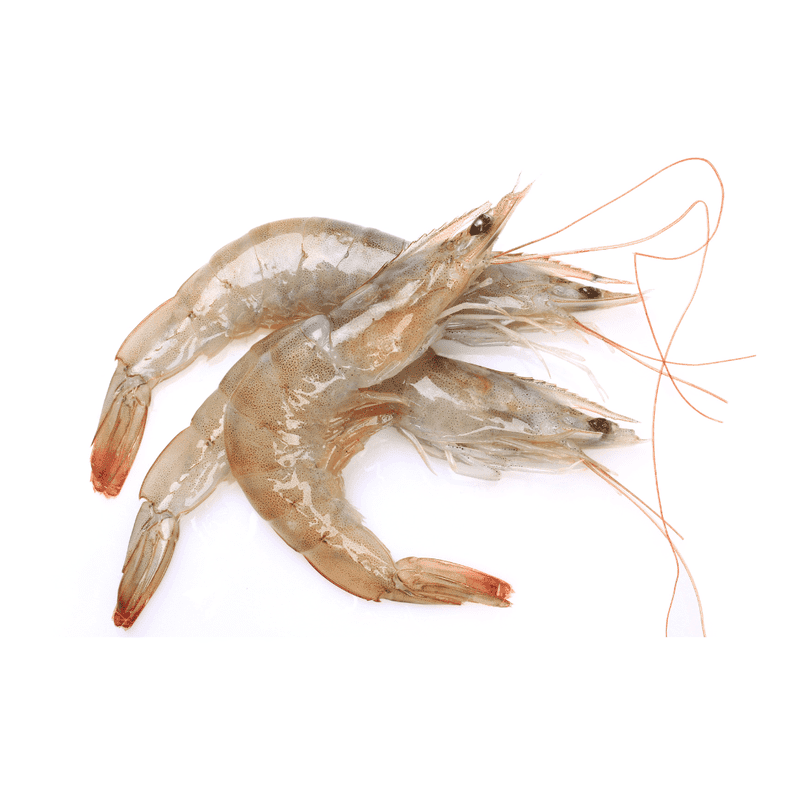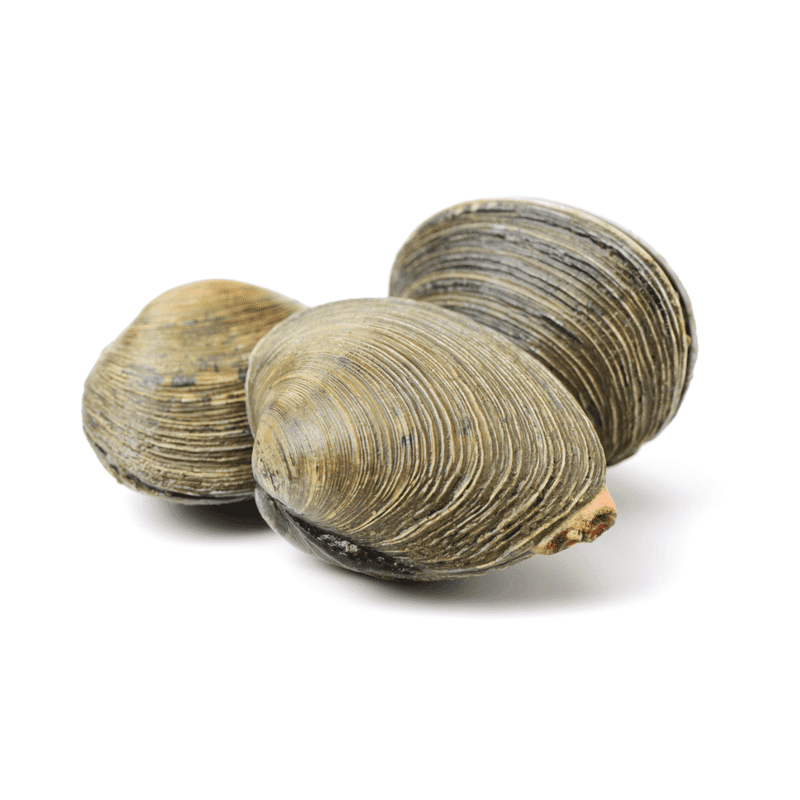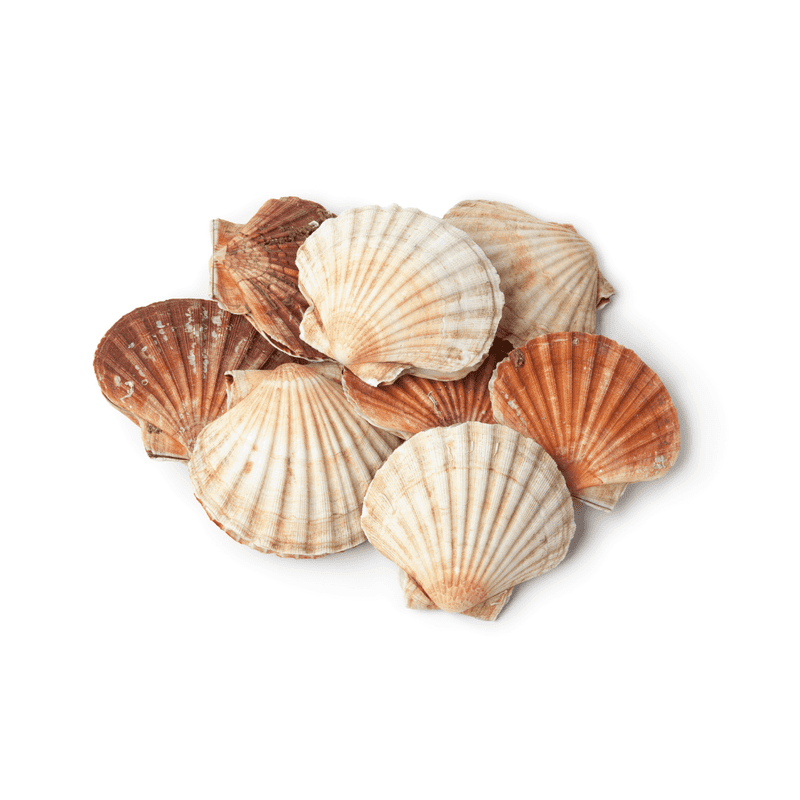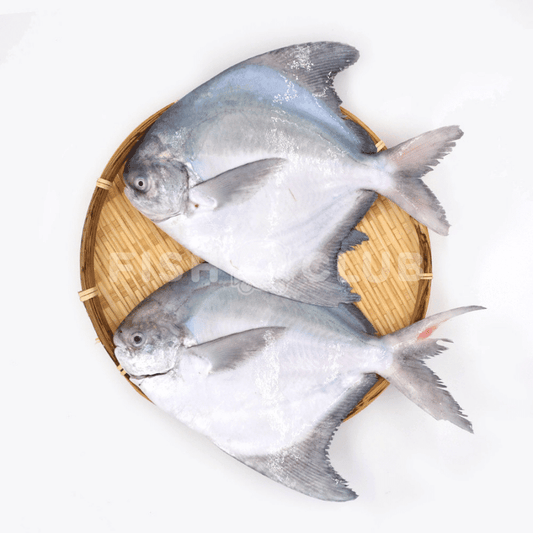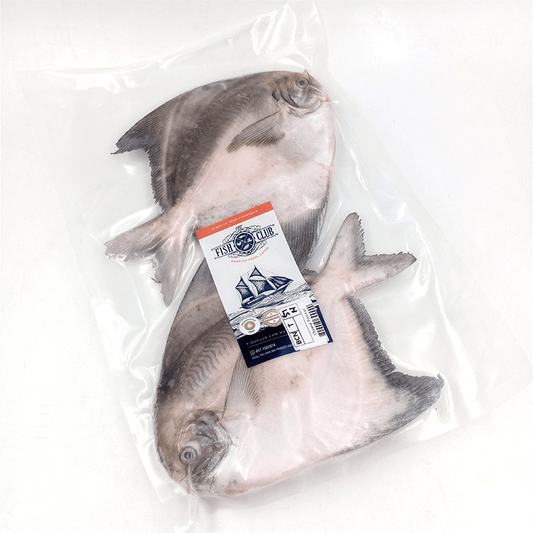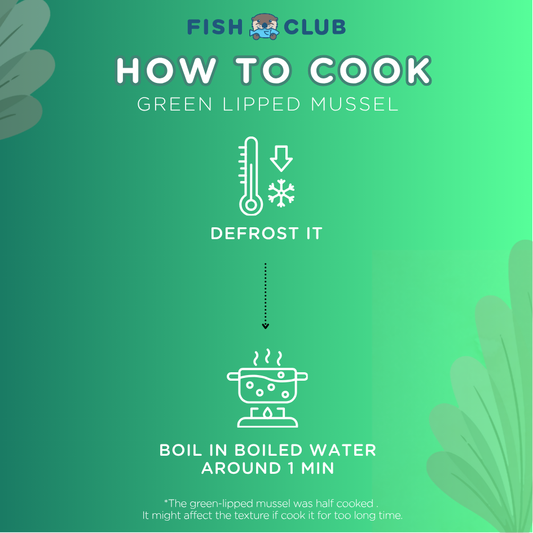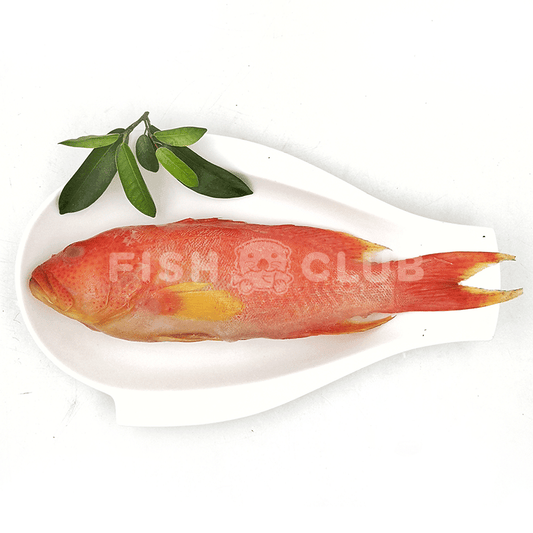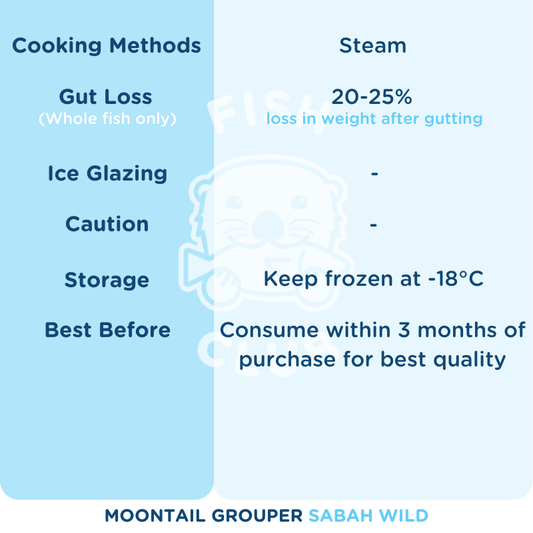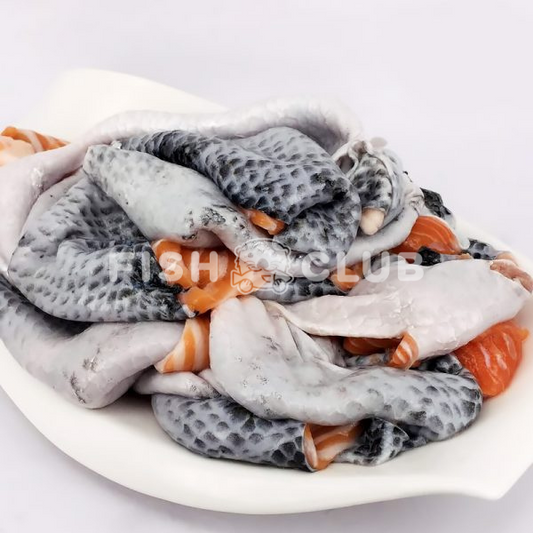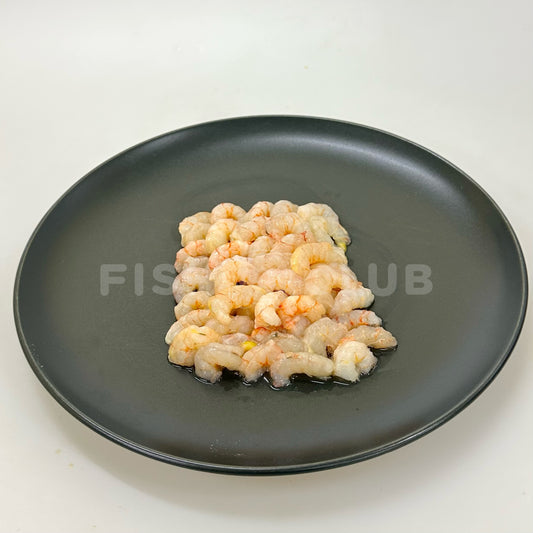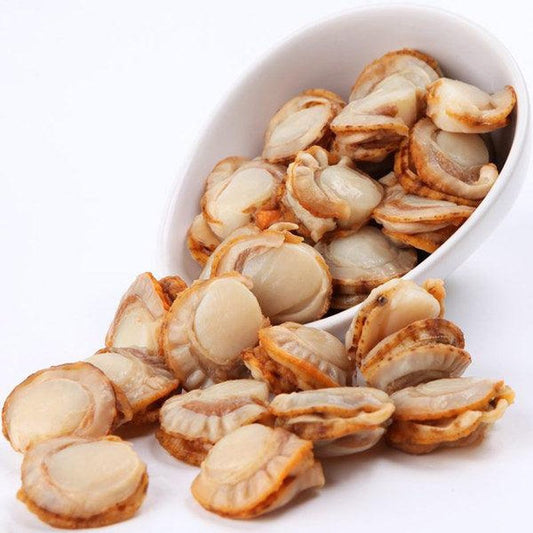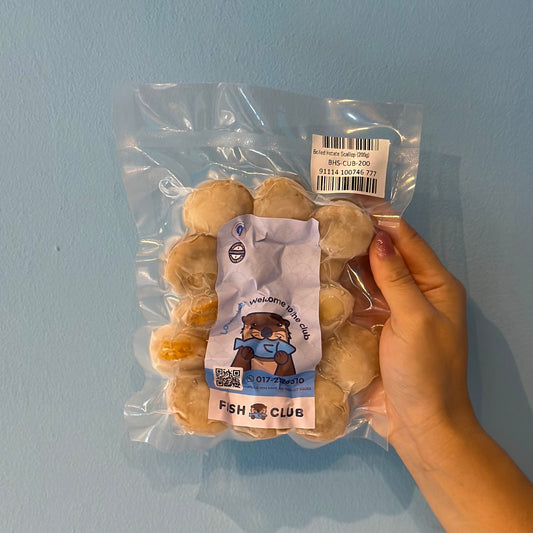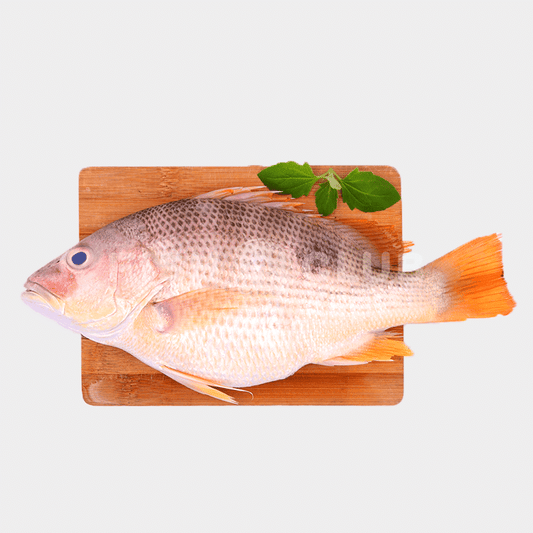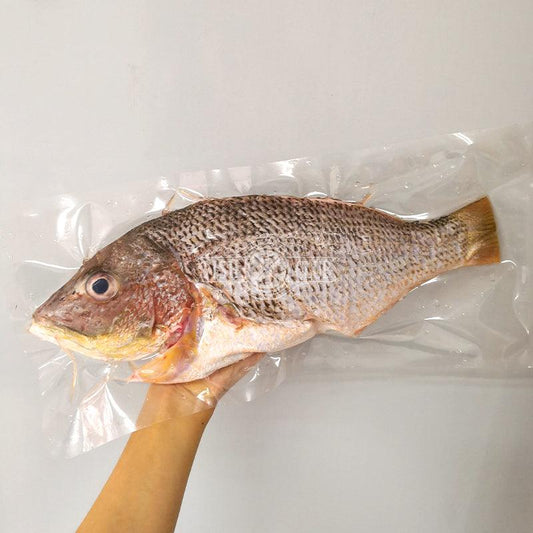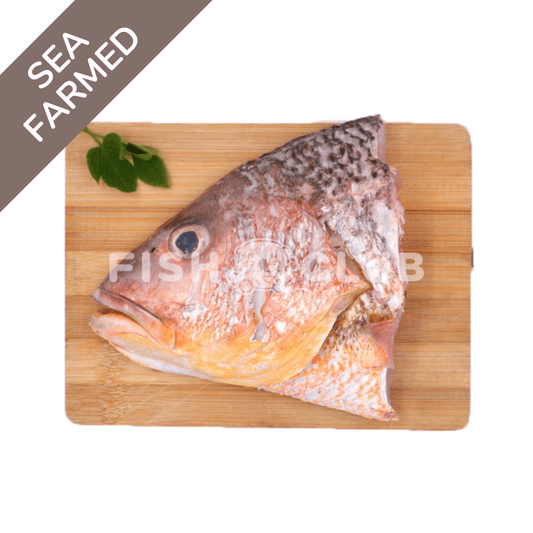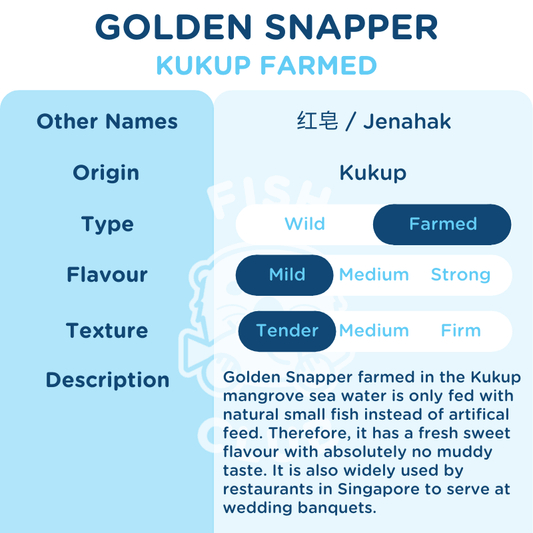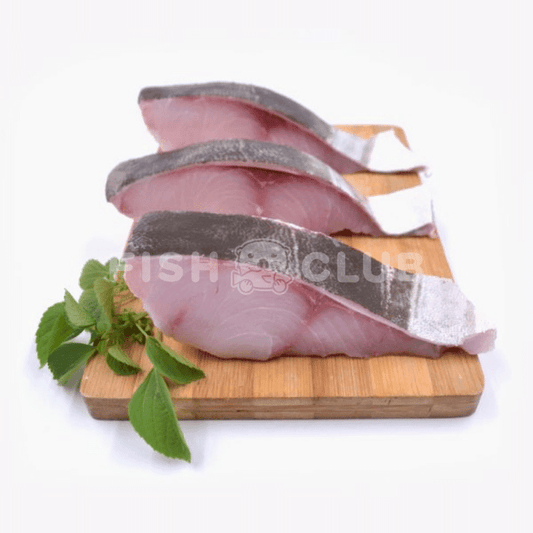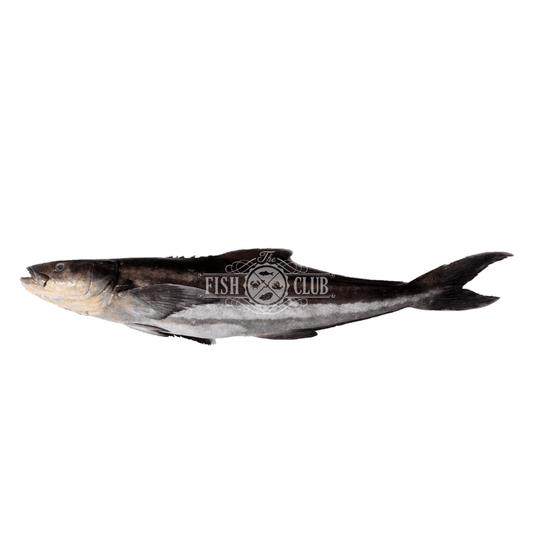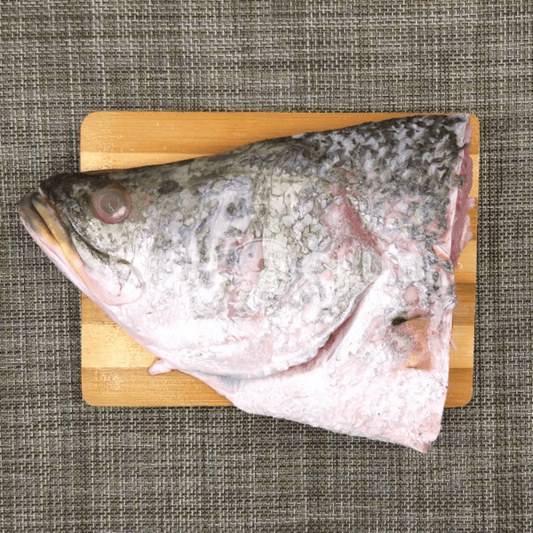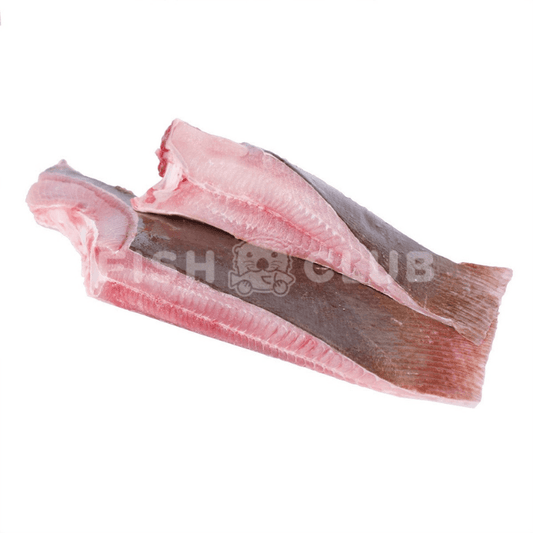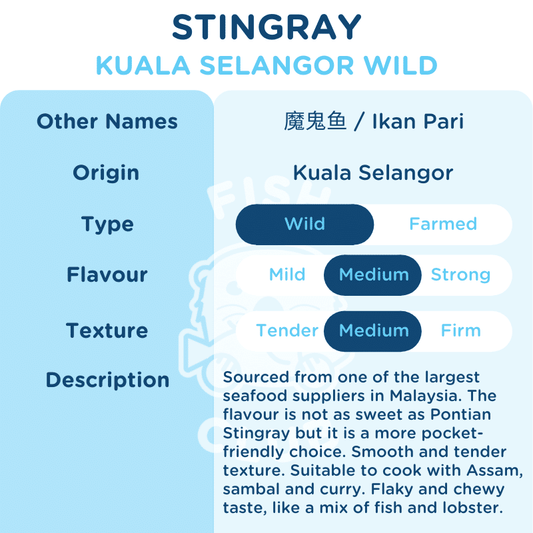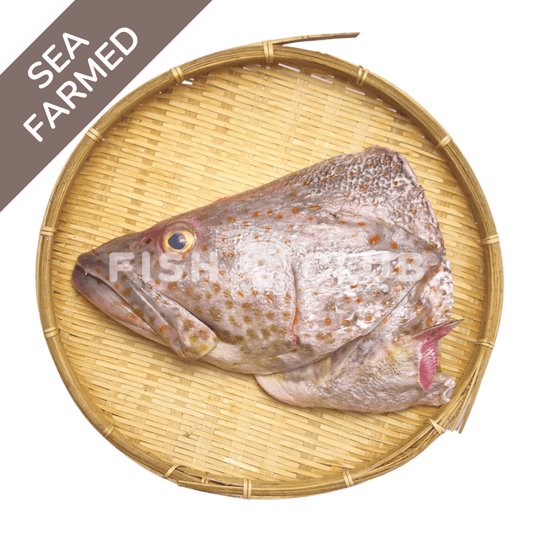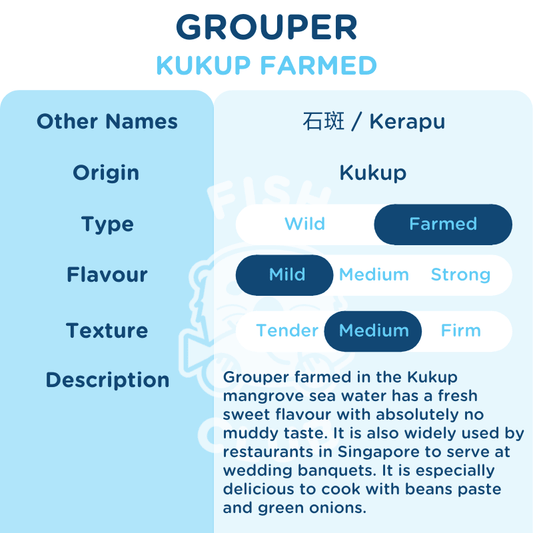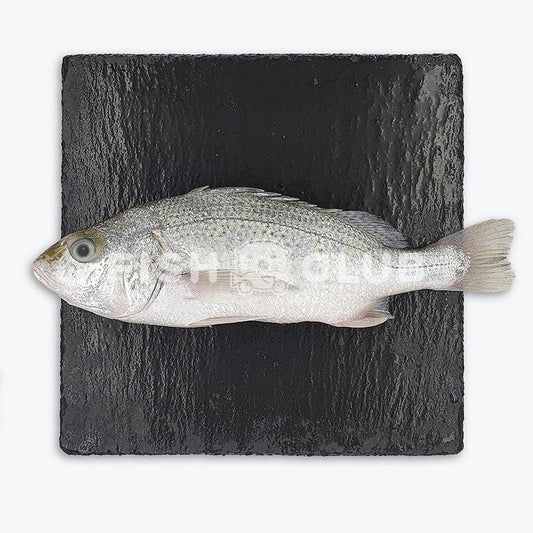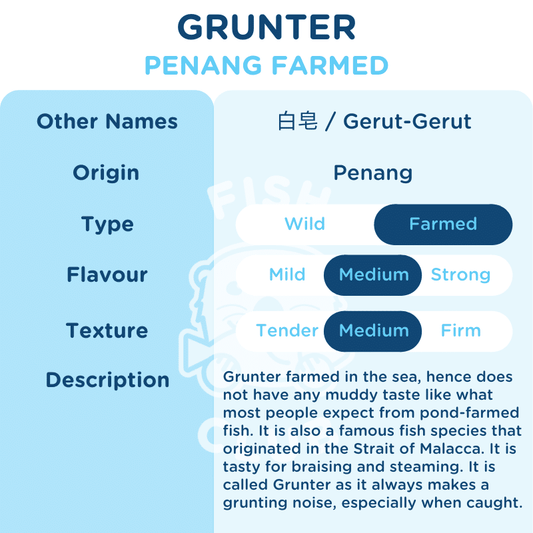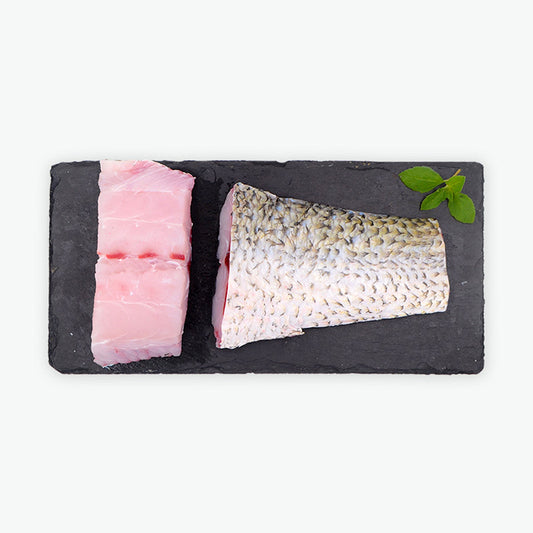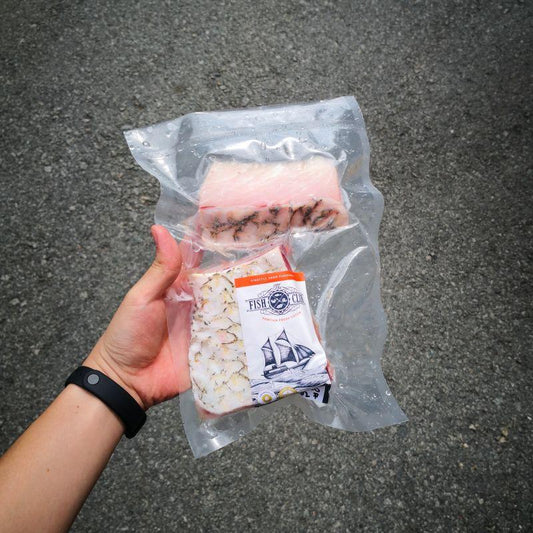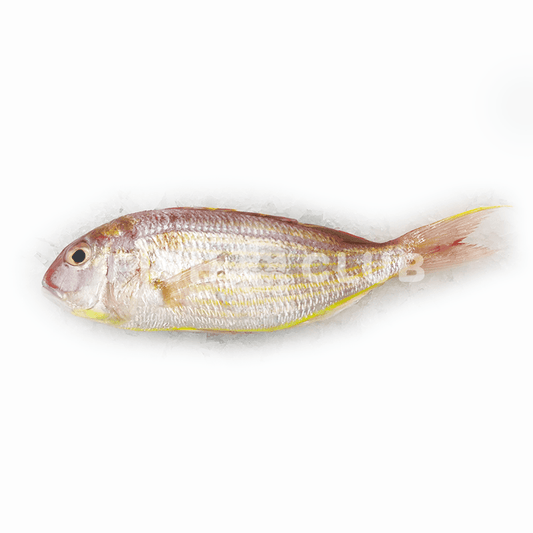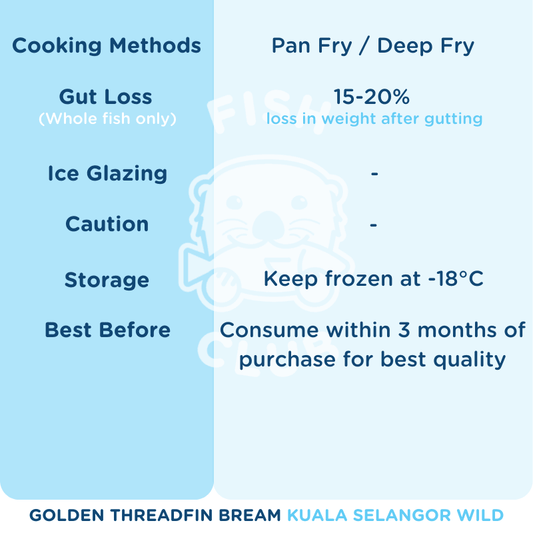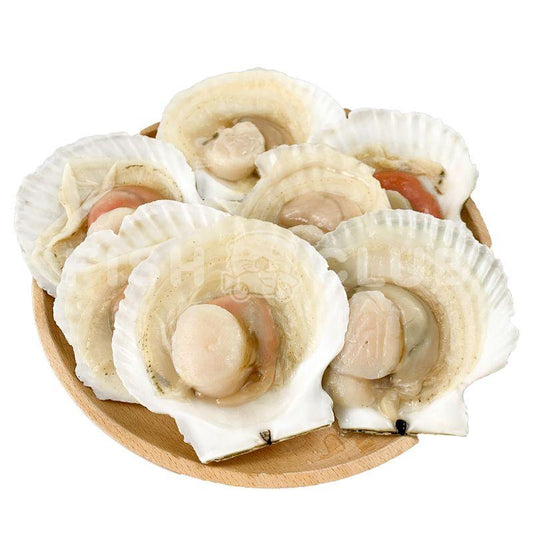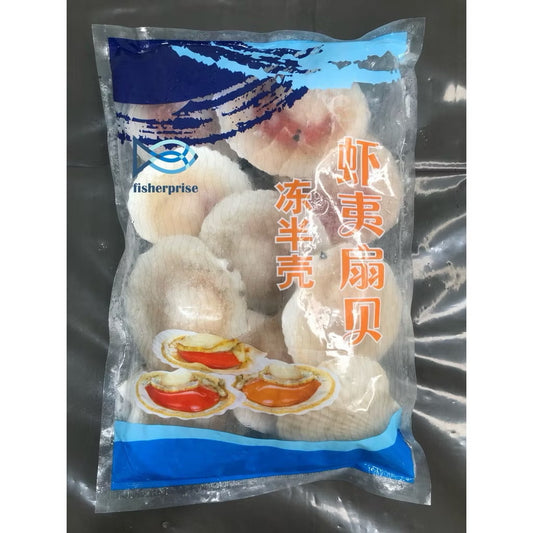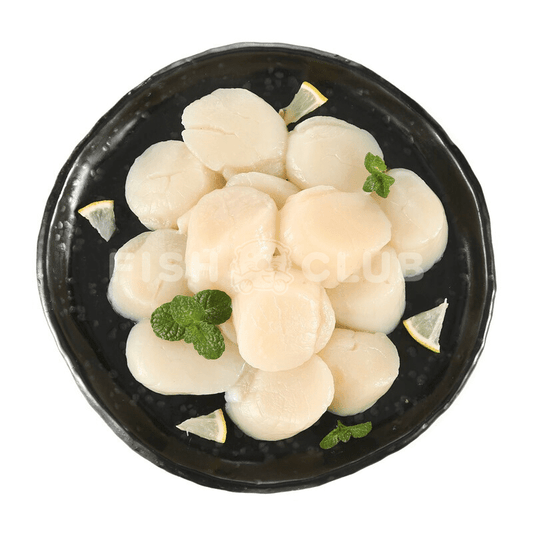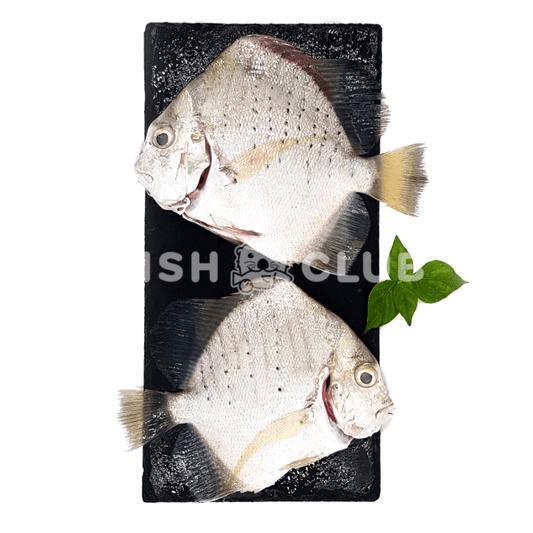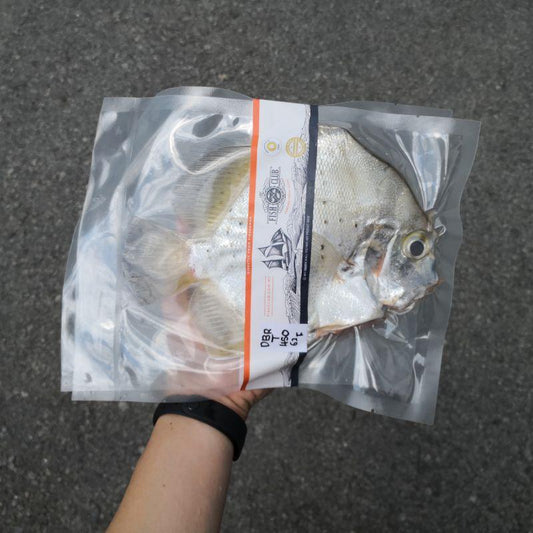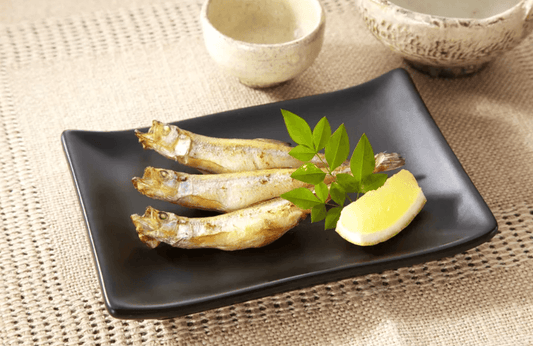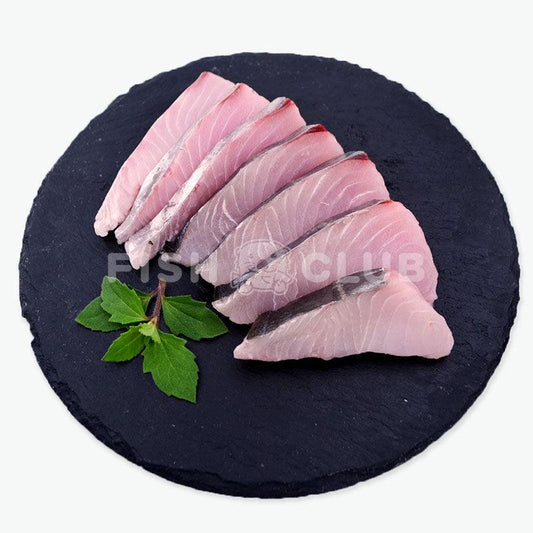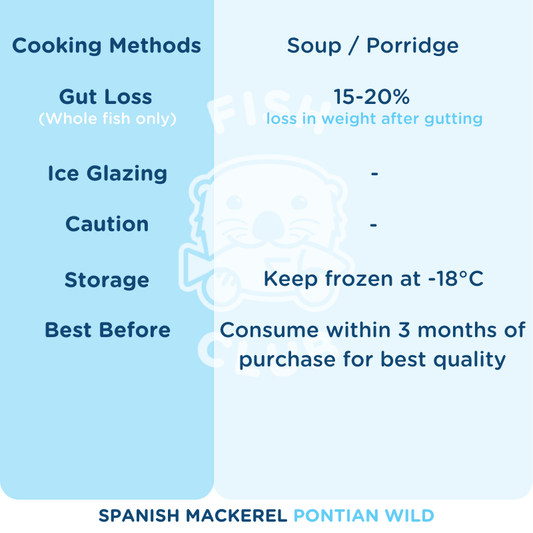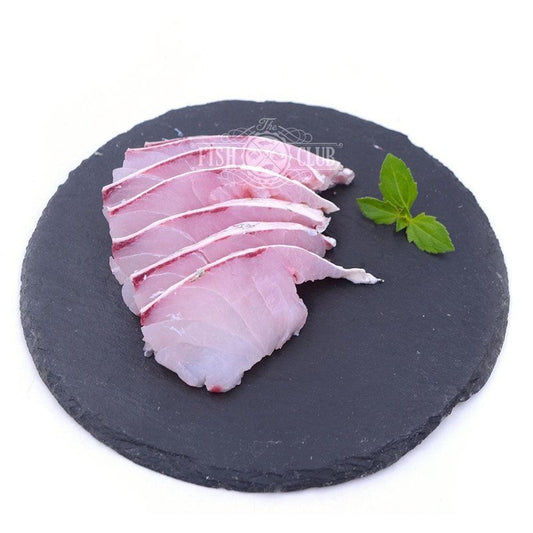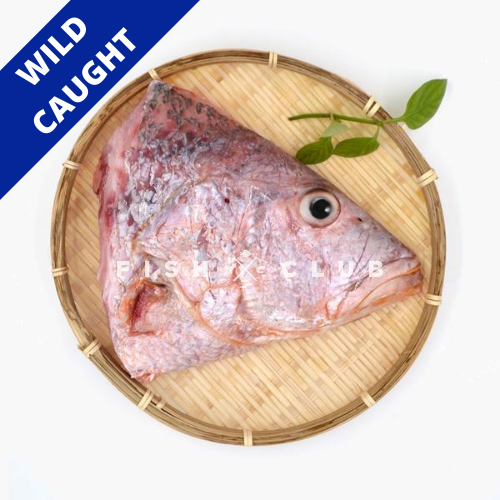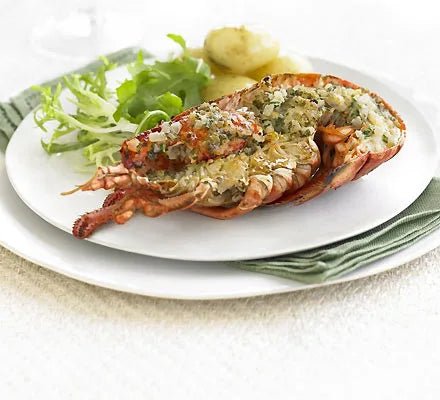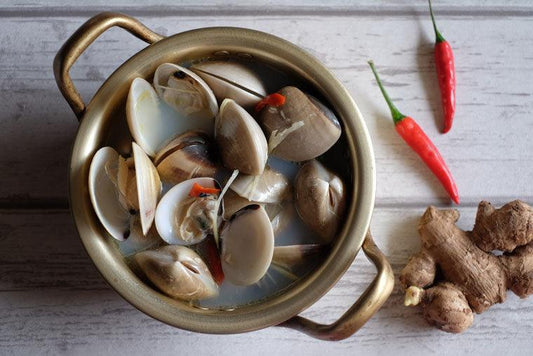Shop by Category
Shop All Seafood
Looking for the best deal on the highest quality seafood? Fish Club isn’t a middle man. We are the supplier and our very own boats spend more time at the sea than at the dock.
-
Chinese Pomfret (Local Wild) / 斗鲳(本地野生)
Vendor:Fish ClubRegular price RM41.90Regular priceUnit price per -
(Sample Kit) Fish Club Origins’ Green Lipped Mussel (Baby Cut)
Vendor:Fish ClubRegular price RM5.90Regular priceUnit price per -
Giant Octopus Leg / 大章鱼脚 - 250g ***
Vendor:Fish ClubRegular price RM21.90Regular priceUnit price per -
Moontail Grouper (Sabah Wild) / 燕尾斑(沙巴野生)
Vendor:Fish ClubRegular price RM32.90Regular priceUnit price per -
Fish Club Origins Norwegian Rainbow Trout Premium Skin (250g) ***
Vendor:Fish ClubRegular price RM7.50Regular priceUnit price per -
Peeled Red Shrimp / 红虾肉 - 150g
Vendor:Fish ClubRegular price RM8.90Regular priceUnit price per -
Boiled Hotate Scallop /扇贝 - 200g
Vendor:Fish ClubRegular price RM9.50Regular priceUnit price per -
Golden Snapper (Pontian Wild) / 红皂(笨珍野生)
Vendor:Fish ClubRegular price RM78.50Regular priceUnit price per -
Golden Snapper (Kukup Farmed) Head / 红皂(龟咯海养)鱼头
Vendor:Fish ClubRegular price RM8.50Regular priceUnit price per -
Cobia (Pontian Wild) Fillet / 海鲡(笨珍野生)厚片
Vendor:Fish ClubRegular price RM9.90Regular priceUnit price per -
Barramundi (Penang Farmed) Head / 金目鲈(槟城海养)鱼头 ***
Vendor:Fish ClubRegular price RM5.10Regular priceUnit price per -
Stingray (Kuala Selangor Wild) / 魔鬼鱼 (瓜雪野生) - 500g
Vendor:Fish ClubRegular price RM29.50Regular priceUnit price per -
Grouper (Kukup Farmed) Head / 石斑(龟咯海养)鱼头
Vendor:Fish ClubRegular price RM12.50Regular priceUnit price perRM21.80Sale price RM12.50 -
Grunter (Penang Farmed) / 白皂 (槟城养殖)
Vendor:Fish ClubRegular price RM25.90Regular priceUnit price perRM29.50Sale price RM25.90 -
Indian Threadfin (Local Wild Caught) Fillet / 黑午(本地野生)厚片 - 200g ***
Vendor:Fish ClubRegular price RM43.50Regular priceUnit price per -
Golden Threadfin Bream (Kuala Selangor) / 红哥里 (瓜雪野生)
Vendor:Fish ClubRegular price RM12.50Regular priceUnit price per -
Half Shell Scallop With Roe / 半壳大扇贝 - 1kg (7-8 Pcs)
Vendor:Fish ClubRegular price RM34.90Regular priceUnit price per -
Japanese Hokkaido Wild Scallop /带子 - 500g
Vendor:Fish ClubRegular price RM69.90Regular priceUnit price per -
Spotted Sicklefish (Pontian Wild) / 曹喜(笨珍野生)
Vendor:Fish ClubRegular price RM10.50Regular priceUnit price per -
Shishamo / 多春鱼 - 150g
Vendor:The Fish ClubRegular price RM11.90Regular priceUnit price per -
Spanish Mackerel (Pontian Wild) Slices / 巴当鲛鱼(笨珍野生)薄片 - 200g
Vendor:Fish ClubRegular price RM25.90Regular priceUnit price per -
Indian Threadfin (Pontian Wild) Slices / 黑午(笨珍野生)薄片 - 200g
Vendor:Fish ClubRegular price RM52.90Regular priceUnit price perRM49.80Sale price RM52.90 -
Hybrid Grouper (Sabah Farmed) / 龙虎斑(沙巴海养)
Vendor:Fish ClubRegular price RM29.90Regular priceUnit price per -
Red Snapper (Local Wild) Head / 红鱼(本地野生)鱼头 ***
Vendor:Fish ClubRegular price RM7.00Regular priceUnit price per
Seafood Handling and Storage
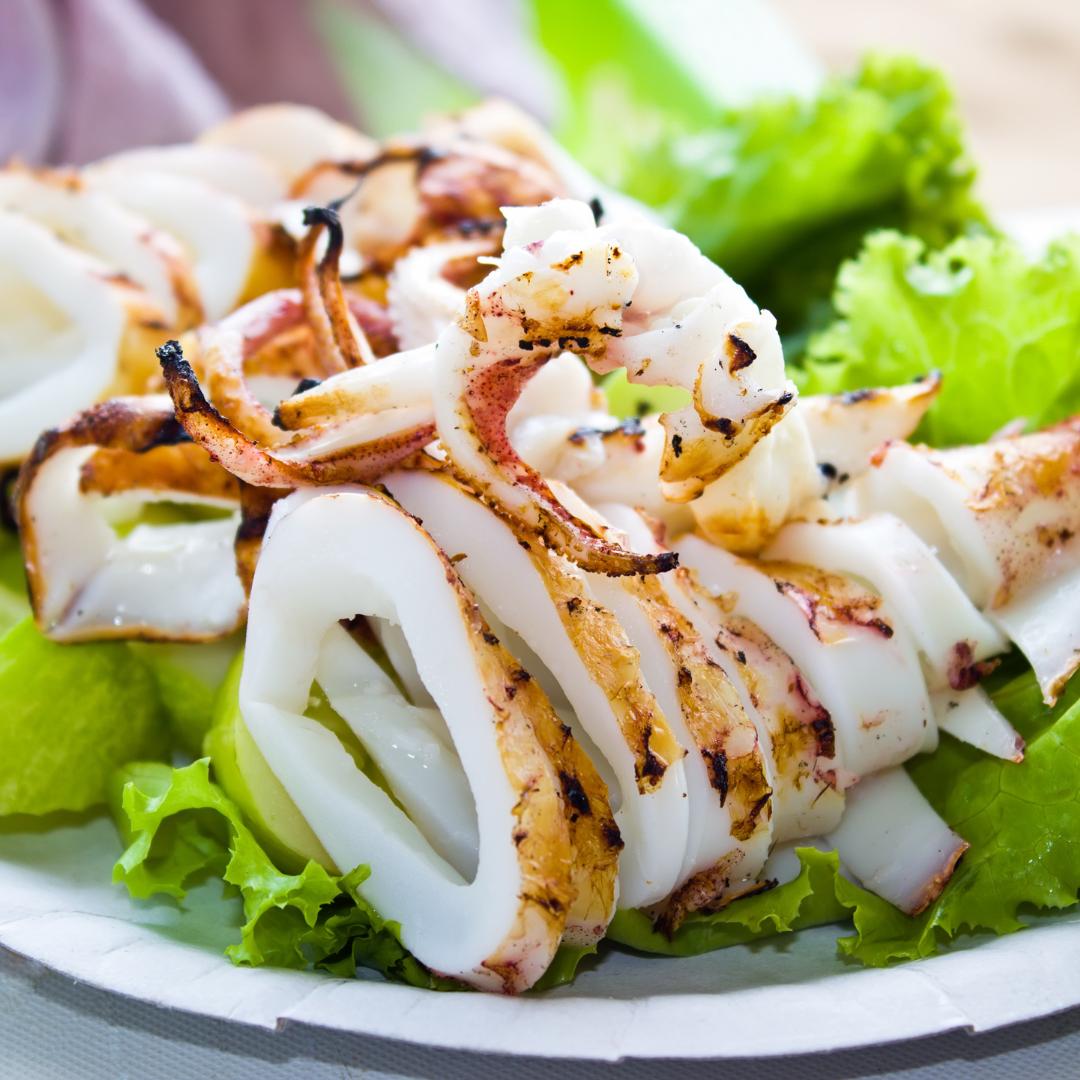
Store Seafood Properly
How long your fresh seafood will last depends on the condition of the product when you purchased it (See selecting seafood) and on how well you take care of it. When storing fresh seafood, keep it in the coldest part of the refrigerator. Use a thermometer to make sure your home refrigerators is operating at 40°F or lower. Fish will lose quality and deteriorate rapidly with higher storage temperature – so use ice when you can. Always purchase seafood last during your shopping trip, and bring a cooler to transport it home.
Frozen seafood should be kept frozen, and it is a good idea to date packages of frozen seafood so you can use the older seafood first. For best quality remember the FIFO concept – First In, First Out. Frozen seafood must be thawed properly. It’s best to thaw frozen seafood in the refrigerator overnight. Other thawing methods include: immersing frozen seafood in cold water for a short time in a sealed plastic bag, or microwaving on a defrost setting until the fish is pliable but still icy. Be careful not to overheat the seafood in the microwave or you will start the cooking process.
Handle and Prepare Seafood Properly
All foods, including seafood, must be handled and prepared in a clean area to avoid cross-contamination. Always remember to keep your hands, preparation area and utensils clean. Never let raw seafood come in contact with already cooked or ready-to-eat foods (e.g. salads, fruit, smoked fish). Whether you are storing fresh fish or thawing frozen fish in your refrigerator, make sure that the juices from raw seafood do not drip onto food that has already been cooked or food that will not be cooked.
Marinades are great for seafood but should not be saved and used as a sauce unless the marinade has been cooked to a temperature of at least 165°F to eliminate microorganisms from the raw fish. Always marinate in the refrigerator in a glass or plastic container.
Never serve cooked seafood on a plate that held the raw product without proper cleaning. Store leftovers, properly wrapped, in the refrigerator within 2 hours. Bacteria will grow rapidly in the temperature “Danger Zone” of 40-140°F so keep hot food above 140°F and cold food below 40°F.
Cook Seafood Properly
To avoid foodborne illness, it is necessary to cook seafood to an internal temperature of 145°F for 15 seconds until the flesh is opaque and flaky. Use a food thermometer to check the internal temperature in the thickest part to make sure that it is fully cooked without overcooking. When fully cooked, scallops and shrimp will turn firm and opaque. Shellfish like clams, mussels, oysters will become plump and opaque and their shells will open. Lobster and crab shells will turn bright red with a pearly-opaque flesh. For specific recommendations on cooking parameters for different seafood products, go to the websites listed below.
Other Seafood Safety Tips
It is always best to cook seafood thoroughly to minimize the risk of foodborne illness. Healthy individuals may choose to eat raw or partially cooked seafood, but young children, females who are pregnant or nursing, immuno-compromised individuals, and older adults should avoid eating raw or partially cooked seafood.
If you have an allergy to one or more types of finfish, shellfish (clams, oysters) or crustaceans (shrimp, lobsters, crab) read food labels carefully and do not eat items you are allergic to.
Simple Seafood Dinner Ideas
Sauces, Preparation Methods, and Ingredients Make All the Difference


